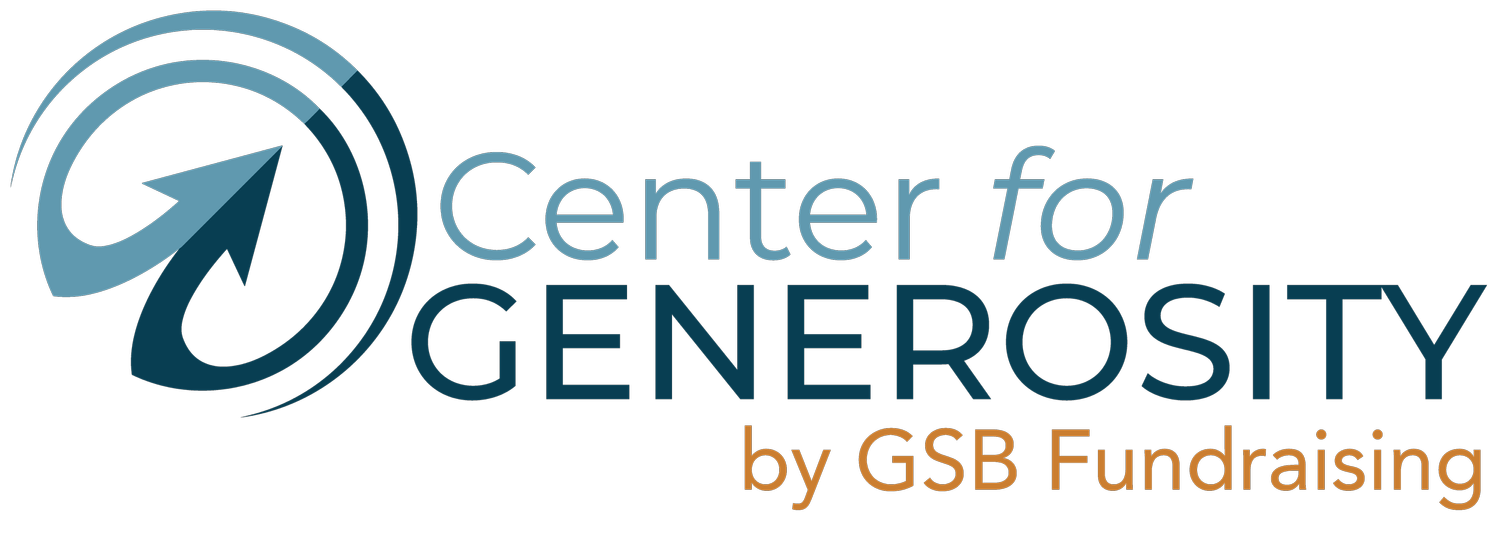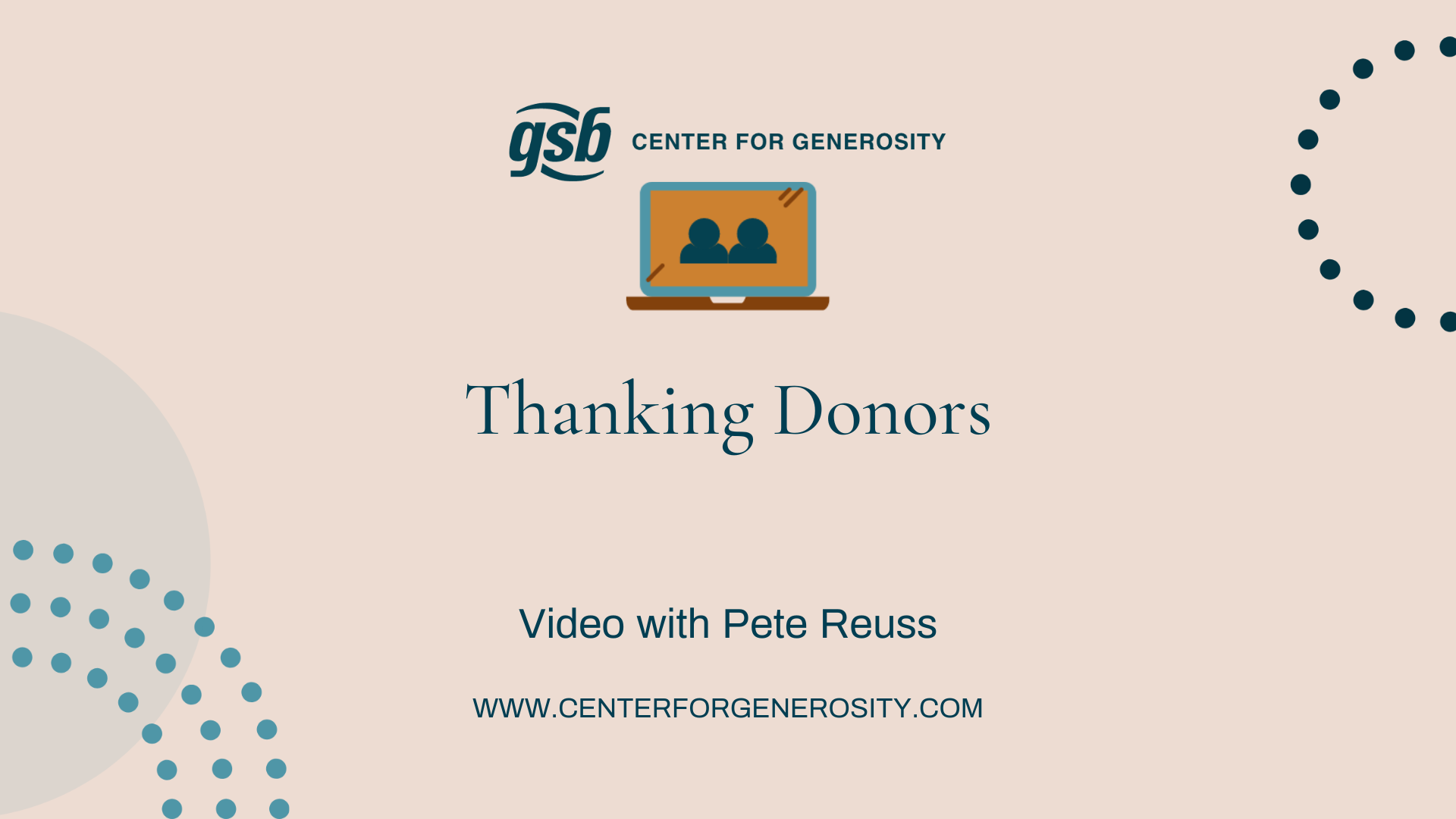Resource Library
Search by Topic
- 10 Steps of Fundraising
- Acknowledgements
- Annual Fund
- Appeal Letters
- Board Governance
- Capital Campaigns
- Case Development
- Challenge Gifts
- Congregation Governance
- Congregations
- Crisis Management
- Database
- Development Councils
- Development Plan
- Donor Relations
- Executive Leadership
- Giving Trends
- Gratitude
- Human Resources
- Lapsed Donors
- Major Gifts
- Marketing
- Matching Gifts
- Mission
- Non-Profits
- Planned Giving
- Public Relations
- Recurring Giving
- Samples
- Self-Care
- Special Appeals
- Special Events
- Stewardship
- Stewardship Appeal
- Storytelling
- Strategic Planning
- The Ask
- Theology
- Tributes
- Volunteers
- Wealth Screen
- Websites
- Youth Fundraising
Strategic Planning Series
Strategic Plans don’t always have the best “reputation” in nonprofits and churches. Organizations often spend a lot of money developing them to have them sit on a shelf doing nothing.
Within organizations, some people naturally think and work strategically. Others thrive on knocking things off their to-do list. To-do lists are not the same as making crucial decisions that help guide the work of the organization toward common goals and objectives.
Congregational Culture and Stewardship
When stewardship best practices lead to conflict and anxiety, something in the congregation’s culture around money is the cause. The Adaptive Leadership framework can provide a lens that leads to lasting change.
Congregational Capital Campaigns
If you are considering a capital appeal or other special appeal, this video will help you think about some critical items to keep in mind. We need to work hard to keep a campaign from feeling like we just want a financial transaction. Furthermore, we don't want anyone to feel shame that their gift is not enough. A campaign done well results in people feeling that this is a project that is accomplished because everyone does their part. A solid case for support is where it all begins.
Should the Pastor Know
In many congregations, the culture is one of secrecy around money. There is a celebration that only one person knows what people give. Sometimes, pastors are told they aren't allowed to know. Other times, pastors are uncomfortable and don't want to know what people give. In Matthew 6.21 Jesus says that giving is a matter of the heart. In addition to giving being a spiritual issue, there is also a leadership issue in that it is impossible to lead an organization if you don't know where the resources are coming from. This video attempts to get movement from a culture of secrecy to a culture of generosity. Confidentiality is very much lifted up, just not secrecy.
Five Best Practices for Congregation Councils
Faithful leaders are clear, calm, and connected. In this video learn about five practices which help leaders hone these skills. Doing this will put Congregation Councils on the path to thoughtful decisions and effective leadership.
Raising Money from Churches
Partnering with churches can greatly increase your annual fund and help you acquire new donors if you position yourself correctly. Also, they will tell your story so that donors, participants, and potential friends start to learn about your impact. Turn congregations into major donors for your annual fund and even for campaign gifts.
Changing Culture #4 Small Experiments
Cultures don’t change overnight. Taking small, patient steps can lead to new (and helpful) patterns of behavior. This four part series builds on the learning of the previous roundtables.
Changing Culture #3: Uncomfortable Enough to Change
When people are uncomfortable enough for long enough, they become open to change long held traditions. This can directly impact your fundraising. This four part series builds on the learning of the previous roundtables.
Changing Culture #2: Seeing the Big Picture
While it’s easy to act and react, stepping back and gaining perspective will allow for deep reflection that can lead to helpful action. This four part series builds on the learning of the previous roundtables.
Self-Evaluation Communications Audit
This is a great evaluation tool to use with your staff, key volunteers, and board members. Have each of them, or a select group of them complete the evaluation and then discuss the results together. You will each see things a little differently and that knowledge will be helpful in making real changes and improve in giving to your organization.
Changing Culture #1: Identifying the Issue
When fundraising best practices lead to conflict and anxiety, something in your organization’s culture around money is the cause. The Adaptive Leadership framework can provide a lens that leads to lasting change. This series builds through four sessions.
Board and Staff Leadership and Generosity
Some leaders want nothing to do with conversations about generosity. The reality is key staff and board members are positioned to have tremendous relationships alongside passion and knowledge of the organization making them tremendously important in the fundraising function. This roundtable will focus on being equipped to be a leader for generosity. We will also discuss ways to empower the board/council to take on this role and thrive in it. Because of the MLK holiday, this session was pre-recorded and is posted in the videos section of the Center website.
Should the Pastor Know Giving
Most executives of non-profits know the generosity of their supporters and freely discuss that generosity. Churches sometimes want to keep this information secret from the pastor and some pastors don’t want to know. In this roundtable we will explore whether or not a pastor should know what people give and how to handle that information. Agency/institution executives are invited to this session to help share their perspectives with pastors about this topic.
Giving Societies
Giving societies are useful tools in renewing and upgrading your donors. Join us as we discuss establishing and marketing giving societies, as well as using giving societies to share our gratitude to our donors.
Is Your Website Working for or Against You?
This week we will review how to assess your website for your internal and external audience. When someone visits your website, you have 7 seconds to convince them to keep scrolling. Many organizations and churches built a website and then checked that box. But website interaction is constantly changing and if we don’t keep up, it sends a message that we aren’t current or organized. In this week's round table we will learn how to audit our websites for our different audiences and where content should be included and where it is sending damaging messages.
Thanking Donors
Congregations expect their people to give of their time and financial resources and readily share their frustration when people don’t step up. It quickly leads to a narrative of scarcity. There’s just not enough. Yet, at the heart, congregations are volunteer organizations. People willingly show up for worship. They choose to give financial gifts. They share their time. It’s amazing to see. What if we moved from a culture of shame and expectation to a culture of gratitude. It begins with thanking people. In this Master Class, Rev. Pete Reuss will move beyond quarterly reports and provide steps to make people feel appreciated for all they do. People who feel appreciated are more likely to take a further step in their journey of generosity.March Roundtable
$10,000 Car Wash
Fundraising, as congregations currently do it, is labor intensive and does not bring joy. In fact, a major reason for staff burnout is that congregations don’t adequately fund its ministry with young people, and they have to rely on special fundraising with high investment and low return. There is a better way. Fundraising can align with our ministry goals and can return significant resources, strengthening our ministry.
Why Job Descriptions are Critical for Council members and how to create them
Few congregations have up-to-date written job descriptions for paid staff members let alone volunteer leadership board members. Without clear expectations, board members can easily fail to live up to expectations. Anxiety rises with uncertainty and the board does not function well.
Avoid discussing the cost of toilet paper at your council meeting
Ever been at a Council meeting that started great and next thing you know you are spending 30 minutes discussing something no one really cares about? Learn tips and strategies for keeping your focus on the gospel mission of the congregation, rather than something easily delegated.




















